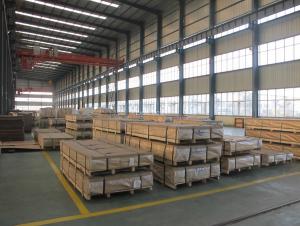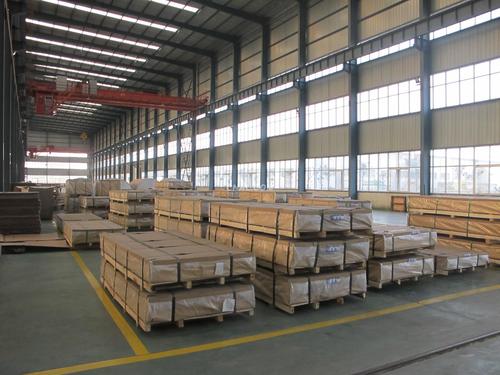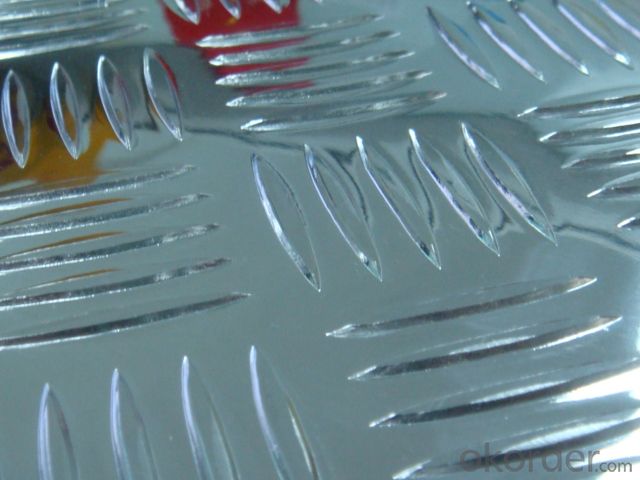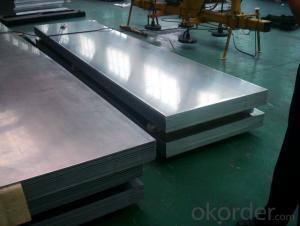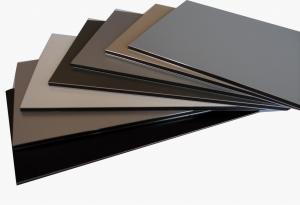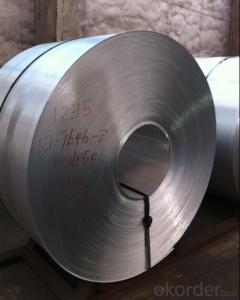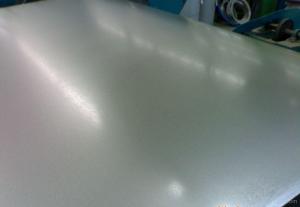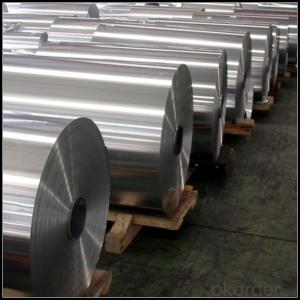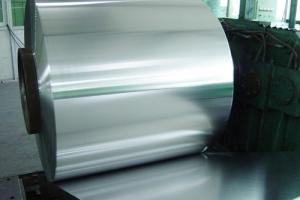Decorative Perforated Aluminum Sheets - Aluminium Plate and Sheet in Stock
- Loading Port:
- Shanghai
- Payment Terms:
- TT OR LC
- Min Order Qty:
- 5 m.t
- Supply Capability:
- 3000 m.t/month
OKorder Service Pledge
OKorder Financial Service
You Might Also Like
1.Structure of Product Description
Cold rolled aluminum sheet and hot rolled aluminium sheet are both widely used in the field of construction field and decoration field, etc.
1100, 1050, 1060, 2024, 5052, 5754, 5083, 6061, 6063, 8011, etc.
2. Main features of the product
a.Competitive price
b. Frist-Class Service.
c. quickly shipment service.
3. Image.
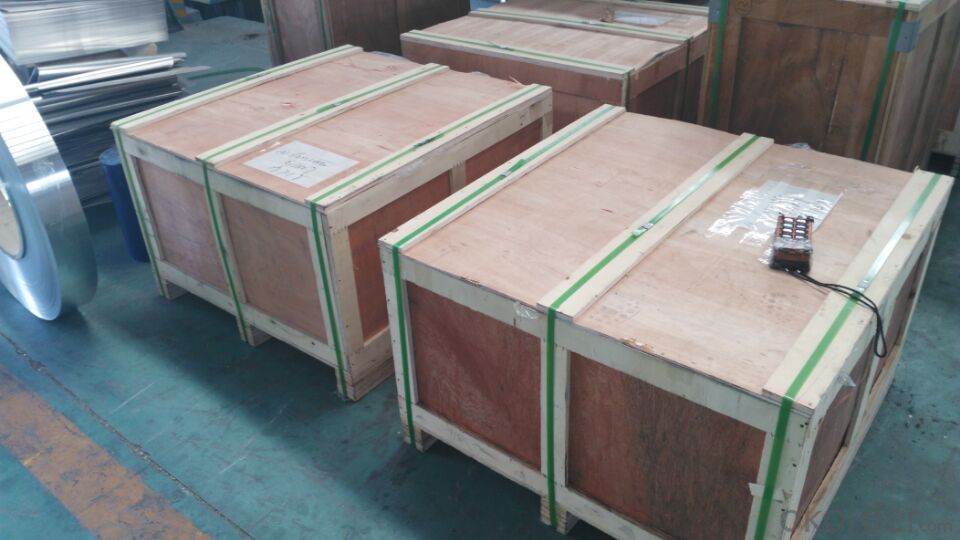
4. Product detailed sizes:
1000mm*2000mm, etc.
5. FAQ:
What is the quality standard?
---Usually our standard is GB3880-2006 or others.
What is the width range?
---It is from 1000mm to 2500mm, etc.
- Q: How does the surface finish of aluminum sheet affect its cleaning requirements?
- The surface finish of aluminum sheet can greatly impact its cleaning requirements. A smooth and polished surface finish tends to be more resistant to dirt, stains, and corrosion, making it easier to clean. On the other hand, a textured or rough surface finish can trap dirt and debris, requiring more effort and specialized cleaning techniques to remove them effectively. Additionally, specific surface finishes may be more prone to scratching or damage during cleaning, necessitating a more gentle approach. Overall, the surface finish of aluminum sheet directly influences the cleaning method and effort needed to maintain its appearance and functionality.
- Q: Are aluminum sheets suitable for wastewater treatment applications?
- Yes, aluminum sheets are suitable for wastewater treatment applications. Aluminum is a versatile material that offers several benefits for use in wastewater treatment processes. Firstly, aluminum sheets are highly resistant to corrosion, which is essential in the harsh and corrosive environment of wastewater treatment plants. This resistance ensures that the aluminum sheets will not deteriorate or react with the chemicals present in the wastewater, thereby maintaining their structural integrity. Additionally, aluminum sheets have excellent thermal conductivity properties, allowing for efficient heat transfer in processes like wastewater disinfection. This thermal conductivity aids in the effective removal of harmful bacteria and contaminants from the wastewater, enhancing the overall treatment process. Furthermore, aluminum sheets are lightweight yet durable, making them easy to handle and install in wastewater treatment systems. This characteristic also contributes to their cost-effectiveness, as they require less maintenance and are less prone to damage compared to other materials. Moreover, aluminum is a sustainable material and can be recycled, reducing the environmental impact of wastewater treatment applications. Recycling aluminum sheets can help conserve natural resources and reduce energy consumption, making it an environmentally friendly choice. In conclusion, aluminum sheets offer numerous advantages for wastewater treatment applications. Their corrosion resistance, thermal conductivity, lightweight nature, and recyclability make them a suitable and efficient material for use in wastewater treatment processes.
- Q: I am doing a report on machining aluminum and characteristics of aluminum and can not find what the 6061 stock stands for. Looked all over library, internet, etc.
- Death Cab For Cutie's What Sarah Said: And It Came To Me Then That Every Plan Is A Tiny Prayer To Father Time As I Stared At My Shoes In The Icu That Reeked Of Piss And 409 And I Rationed My Breathes As I Said To Myself That I'd Already Taken Too Much Today As Each Descending Peak Of The Lcd Took You A Little Farther Away From Me Away From Me Amongst The Vending Machines And Year-old Magazines In A Place Where We Only Say Goodbye It Stung Like A Violent Wind That Our Memories Depend On A Faulty Camera In Our Minds But I Knew That You Were A Truth I Would Rather Lose Than To Have Never Lain Beside At All And I Looked Around At All The Eyes On The Ground As The Tv Entertained Itself 'cause There's No Comfort In The Waiting Room Just Nervous Pacers Bracing For Bad News And Then The Nurse Comes Round And Everyone Will Lift Their Heads But I'm Thinking Of What Sarah Said That love Is Watching Someone Die
- Q: Is plastic or alumium container more harmful to store food in if it does get to the food while heating.
- I have read that some plastics have estrogen in them. Causing an excess in either sex can cause serious problem, men especially. Autopsy's of people who had Alzheimer's show aluminum in their brains. Life is definitely a challenge.
- Q: what's the size of gap while pressing 6mm aluminum sheet?
- unilaterial gap is 0.1-0.15mm, and you can change the gap according to cutting effect.
- Q: How do you join two aluminum sheets together?
- There are several methods to join two aluminum sheets together. One common technique is using mechanical fasteners such as screws, rivets, or bolts. These fasteners can be drilled or punched through the sheets, creating a secure connection. Another method is using adhesives specifically designed for aluminum bonding. These adhesives provide a strong and durable bond between the two sheets. Welding is another popular option, where the aluminum sheets are melted and fused together using heat. This method requires specialized equipment and expertise. Lastly, a technique called clinching can be used, which involves applying pressure to deform the aluminum sheets and interlock them together. Each method has its own advantages and considerations, depending on the specific application and desired outcome.
- Q: What is the fatigue limit of aluminum sheets?
- The fatigue limit of aluminum sheets refers to the maximum stress level at which the material can endure an infinite number of cyclic loadings without experiencing fatigue failure. Aluminum has a relatively high fatigue limit compared to other materials, which means it can withstand a significant number of load cycles before fatigue failure occurs. However, it is important to note that the fatigue limit of aluminum sheets can vary depending on factors such as the alloy composition, heat treatment, and surface conditions. Therefore, it is crucial to consider these factors and conduct proper testing to determine the specific fatigue limit of a particular aluminum sheet.
- Q: Can aluminum sheets be used in the aerospace industry?
- Indeed, the aerospace industry does employ aluminum sheets. Aluminum, being a lightweight material with a remarkable strength-to-weight ratio, is highly favored for numerous aerospace purposes. Its usage is prevalent in the manufacturing of aircraft structures, including fuselages, wings, and panels. The adoption of aluminum sheets in the aerospace sector offers several advantages, encompassing diminished fuel consumption due to weight reduction, enhanced maneuverability, and heightened payload capacity. Furthermore, aluminum showcases excellent resistance to corrosion, a vital trait for aircraft operating in harsh environmental conditions. All in all, the aerospace industry extensively relies on aluminum sheets, owing to their advantageous properties and exceptional performance.
- Q: Are aluminum sheets resistant to saltwater corrosion?
- Yes, aluminum sheets are highly resistant to saltwater corrosion.
- Q: What are the different types of surface coatings for aluminum sheets?
- There are several types of surface coatings available for aluminum sheets, including anodizing, powder coating, painting, and laminating.
Send your message to us
Decorative Perforated Aluminum Sheets - Aluminium Plate and Sheet in Stock
- Loading Port:
- Shanghai
- Payment Terms:
- TT OR LC
- Min Order Qty:
- 5 m.t
- Supply Capability:
- 3000 m.t/month
OKorder Service Pledge
OKorder Financial Service
Similar products
Hot products
Hot Searches
Related keywords
